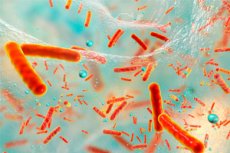New publications
First-in-class drug may prevent organ failure and death associated with sepsis
Last reviewed: 02.07.2025

All iLive content is medically reviewed or fact checked to ensure as much factual accuracy as possible.
We have strict sourcing guidelines and only link to reputable media sites, academic research institutions and, whenever possible, medically peer reviewed studies. Note that the numbers in parentheses ([1], [2], etc.) are clickable links to these studies.
If you feel that any of our content is inaccurate, out-of-date, or otherwise questionable, please select it and press Ctrl + Enter.

A new drug could prevent organ failure and death associated with sepsis by restoring the health of a patient's blood vessels.
Researchers from the University of Queensland and Queensland Children's Hospital have successfully tested a new class of drug in mice.
Dr Mark Coulthard, from the University of Queensland's paediatric intensive care unit and hospital, said results from preclinical trials using human blood samples also looked promising.
The reason for organ failure in patients with sepsis is that the endothelial cells lining the blood vessels become permeable, leading to abnormal fluid shifts and eventually cutting off the blood supply.
We identified markers of vascular injury in children admitted to hospital with fever and suspected infection, as well as protein signaling pathways associated with this in cells.
The drug we have developed targets the interaction of these pathways to restore the function of vascular endothelial cells," said Dr Mark Coulthard.
Professor Trent Woodruff, from the University of Queensland's School of Biomedical Sciences, said the new approach targeted the root cause of organ failure, while previous unsuccessful attempts had largely focused on the immune response.
"Sepsis has been called 'the drug company's graveyard' because despite significant resources and more than 100 clinical trials, there is still no effective treatment that modifies the host response," said Professor Woodruff.
"A drug that targets the vascular endothelium could potentially reduce the damage caused by sepsis, organ damage and death."
Dr Coulthard said the researchers were encouraged by the results of the preclinical trials.
"We tested our drug in blood samples from 91 children admitted to hospital with fever and suspected infection and noted changes in biomarkers similar to those seen in our mouse studies," he said.
"This suggests that the drug may be effective in humans as well.
Further research is needed, including studying the drug in other animal models and its effectiveness in clinical trials."
The study was published in the journal Science Translational Medicine.
